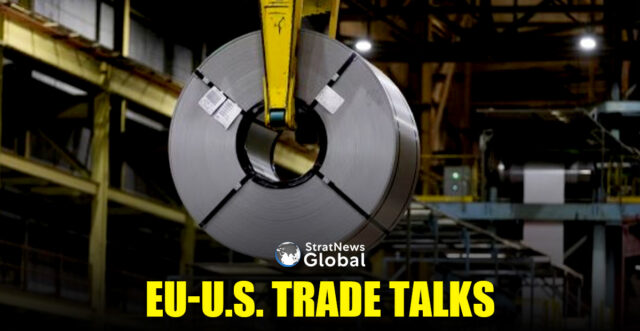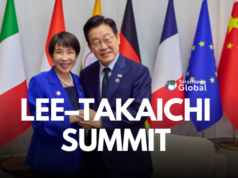Top trade officials from the European Union and the United States said on Wednesday that their negotiations were moving in a positive direction. However, EU representatives noted that the U.S. decision to double tariffs on metals had complicated the talks.
The new tariffs on steel and aluminium imports kicked in on Wednesday, the same day President Donald Trump’s administration wants trading partners to make “best offers” to avoid other punishing import levies from taking effect in early July.
Meanwhile, in another sign of disruptions to global trade, concerns about the damage from China’s restrictions on critical mineral exports deepened, with some European auto parts plants suspending output and German carmaker BMW warning that its supplier network was affected by shortages of rare earths.
In terms of tariff talks, the 27-nation EU’s trade negotiator Maros Sefcovic said his meeting with U.S. Trade Representative Jamieson Greer in Paris early on Wednesday was constructive.
“We both concluded that we are advancing in the right direction, at pace,” Sefcovic told reporters after the meeting. Technical talks are ongoing in Washington, he said, and high-level contacts will follow.
“What makes me optimistic is I see the progress … the discussions are now very concrete,” Sefcovic said. He stressed that he and Greer had agreed to restructure the focus of their trade talks, after having been “approaching it from different angles.”
Positive Talks
Greer said the talks had been constructive, adding in a statement from his office that they demonstrated “a willingness by the EU to work with us to find a concrete way forward to achieve reciprocal trade”.
Late on Tuesday, Trump signed an executive proclamation that activates from Wednesday a hike in the tariffs on imported steel and aluminium to 50% from the 25% rate introduced in March.
Separately, Trump said early on Wednesday that Chinese President Xi Jinping is tough and “extremely hard to make a deal with,” exposing frictions after the White House raised expectations for a long-awaited phone call between the two leaders this week.
The increase in U.S. metals tariffs came into effect at 12:01 a.m. (0401 GMT). It applies to all trading partners except Britain, the only country so far to strike a preliminary trade agreement with the U.S. during a 90-day pause on a wider array of Trump tariffs.
The increase in the levies jolted the market for both metals this week, especially for aluminium, which has seen price premiums more than double this year.
Sefcovic said he deeply regretted the doubling of the steel tariffs, stressing that the EU has the same challenge – overcapacity – as the United States on steel, and that they should work together on that.
Global forex, bond and stock markets took the latest tariffs in their stride, with many investors betting that the current levies may not last and that the president will back off from such extreme actions.
‘Best Offer’ Due Date
Wednesday is also when the White House expects trading partners to propose deals that might help them avoid Trump’s hefty “reciprocal” tariffs on imports across the board from taking effect in five weeks.
U.S. officials have been in talks with several countries since Trump announced a pause on those tariffs on April 9, but so far only the UK deal has materialised and even that pact is essentially a preliminary framework for more talks.
Also on Wednesday, British Prime Minister Keir Starmer said that he was confident U.S. tariffs on UK steel would be reduced to zero within a “couple of weeks.”
It was reported on Monday that Washington was asking countries to list their best proposals in such key areas as suggested tariffs and quotas for U.S. products and plans to remedy any non-tariff barriers.
In turn, the letter promises answers “within days” with an indication of a “landing zone,” including what tariff rates countries can expect after the 90-day pause ends on July 8.
At issue for most trading partners is whether they retain the current baseline rate of 10% on most exports to the U.S. after that date, or something possibly much higher.
Havoc For Businesses
Uncertainty around U.S. trade policy is creating havoc for businesses around the world.
On Wednesday, French spirits group Remy Cointreau abandoned its 2030 sales growth ambitions, saying tariffs, slow U.S. sales and high uncertainty could derail its plans for this financial year and beyond.
But its shares rose as much as 5% even after its warning, with analysts noting that tariff uncertainty was already taken into account.
Austrian speciality steelmaker Voestalpine also warned that tariffs were likely to dent its earnings.
“U.S. producers will try to find suppliers that are not affected by the tariffs. If they find one, the German supplier is probably out,” said German steel and metal processing association WSM, which represents around 5,000 companies.
“Nobody has the margins to absorb these bottomless tariffs,” said WSM Managing Director Christian Vietmeyer, adding: “The EU must therefore do everything it can to resolve this customs conflict.”
(With inputs from Reuters)





